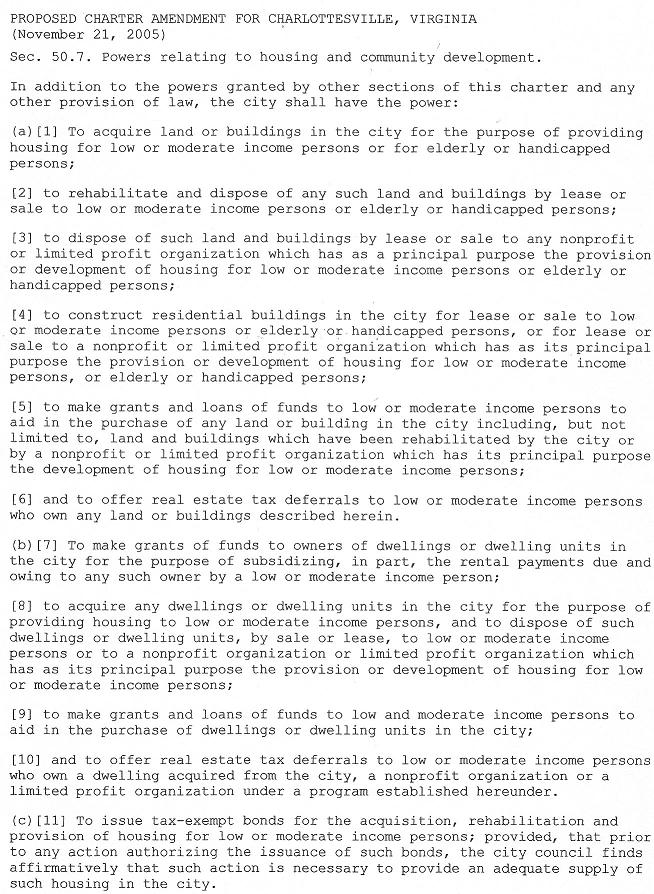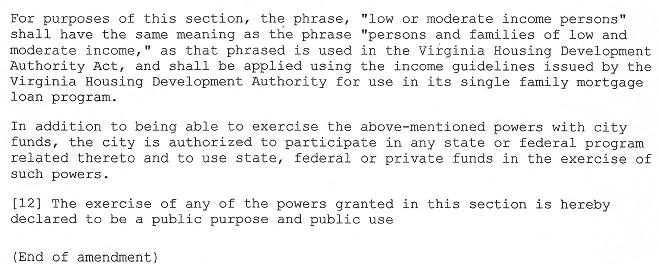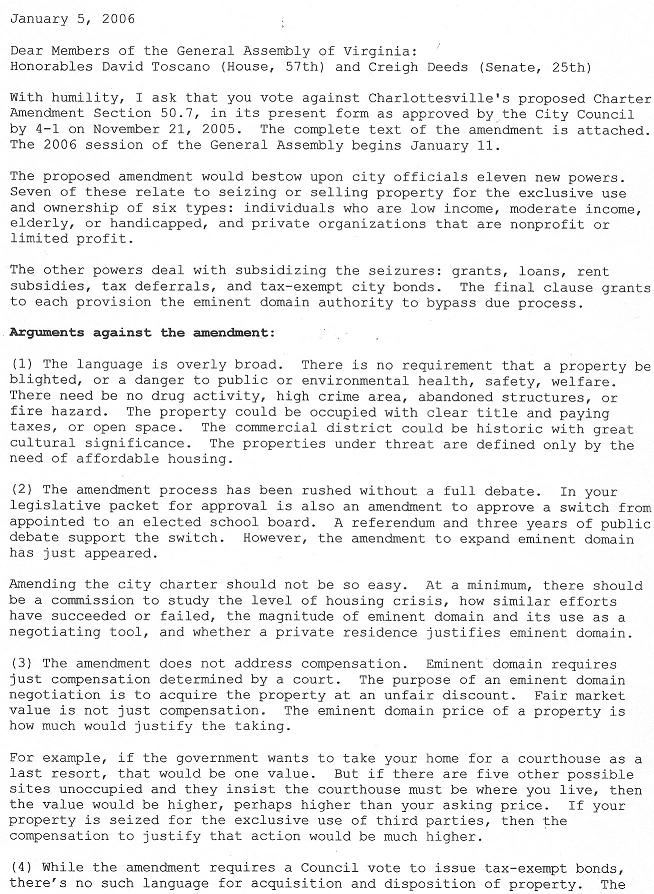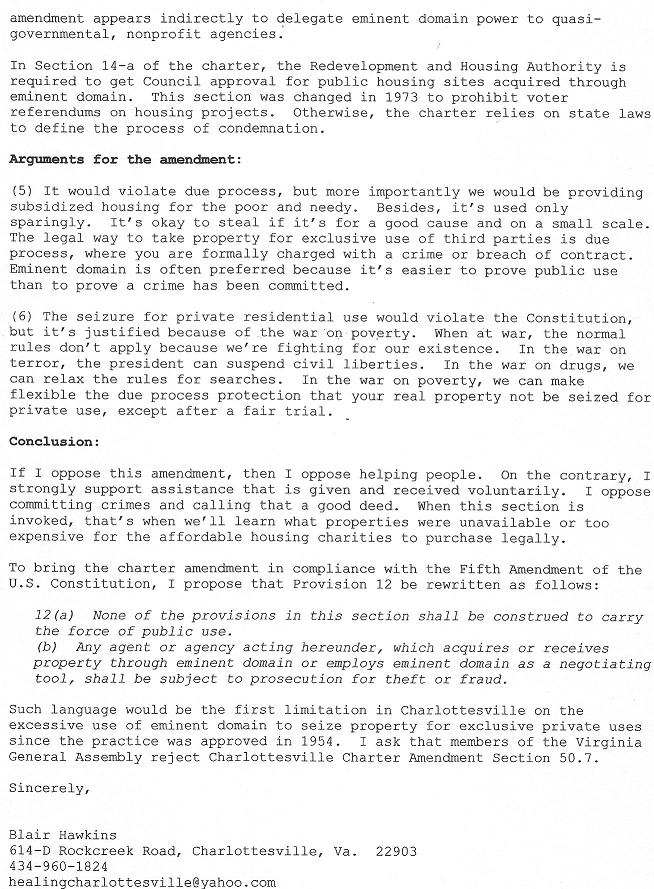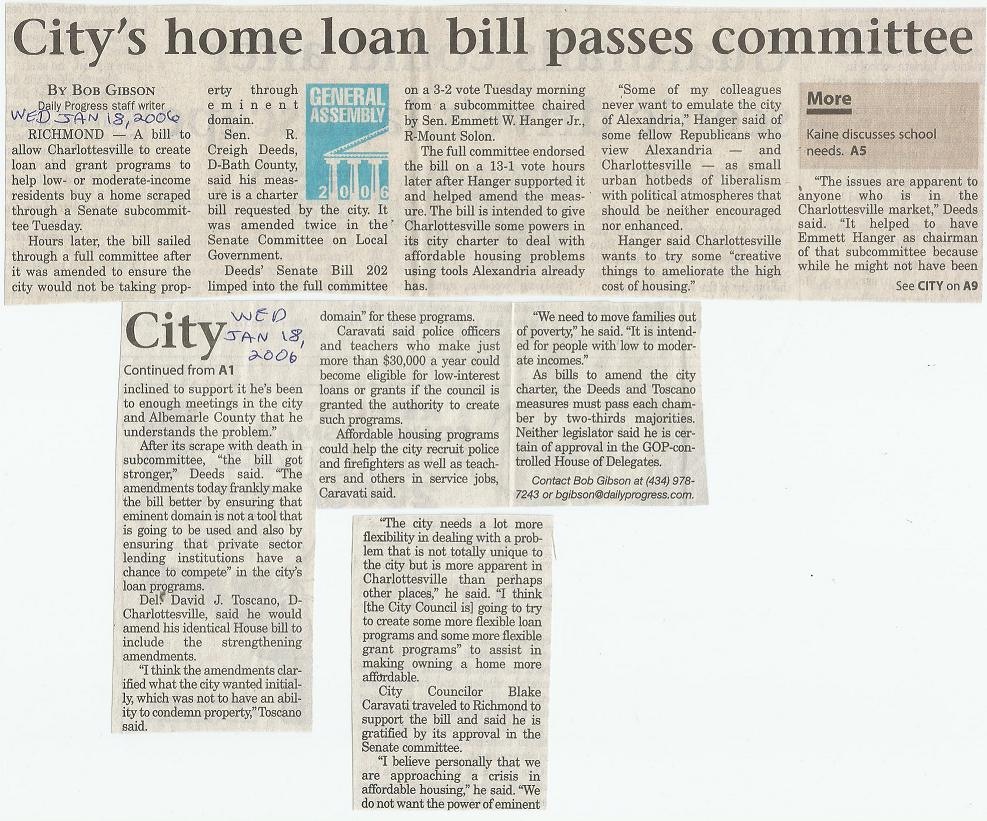Blair's Magazine of Lost History | Charlottesville, Virginia | healingcharlottesville@yahoo.com

Table of Contents — Normal — Frames
 104 Photos of Cemetery at University of Virginia.
104 Photos of Cemetery at University of Virginia.
Charlottesville City Council TV10 LIVE & ARCHIVED + other public meetings.

Hidden In Plain Sight
The History of Charlottesville and the August 12, 2017 Riot
Now available on Amazon Kindle for only $1.99. Download the free reader program. Compelling description and lengthy excerpt. More versions and promotions are planned. Countdown to the August 12 anniversary.
— After the riot at Lee Park on August 12, 2017, President Donald J. Trump said he wanted to study Charlottesville's history to find out what happened. Mr. President: This book is your study manual. —

|
Watch LIVE | Watch LATER | Agenda Feb. 20 Materials | City Council Page
Report from City Manager Maurice Jones:
City Council created the ad-hoc Blue Ribbon Commission on Race, Memorials and Public Spaces (BRC) on May 2, 2016 to address the questions and concerns brought before Council regarding the statues of Robert E. Lee and Stonewall Jackson. Eleven commission members were appointed after an application process.
[ 47-meg 328-page Report from Charlottesville.org. Also archived at blairhawkins.net/RH/2016BRCReport.pdf. The BRC voted 6 to 3 to keep the statues, add historical context and to change the names Dec. 5, 2016.
Blair's Magazine wrote 2 stories about the report and discussed it on the Schilling Show.
- Statues & At-Large Remain from Segregation. Dec. 27, 2016
- Add KKK Marker to Lee Park. Jan. 2, 2017
- WINA podcast Dec. 29, 2016. ]
A final report was presented to Council on December 19, 2016. The Council reviewed the Commission’s recommendations at its January 17, 2017 meeting.
On February 6, 2017, the City Council voted 3-2 to remove the Lee statue from Lee Park. (Subsequent to the events of the summer, the vote changed to 5-0.) In separate motions, the Council voted unanimously to rename both Lee and Jackson Parks and to move forward with developing a Request for Proposal (RFP) for professional design services to create a Master Plan for the Historic North Downtown and Court Square Districts.
 [ 2-day trial is scheduled for January 31, 2019 to save the Lee & Jackson statues. The tarps covering them since August 12, 2017 will come before the City Court again on February 27, 2018. ]
[ 2-day trial is scheduled for January 31, 2019 to save the Lee & Jackson statues. The tarps covering them since August 12, 2017 will come before the City Court again on February 27, 2018. ]
On April 17, 2017, the Council voted to hold a naming contest for the two parks and asked the staff to forward the top ten appropriate suggestions to the Parks and Recreation Advisory Board and the Historic Resources Committee for each group’s consideration. The charge for both boards was to provide the Council with three naming options for each park.
Located below are the top ten appropriate names for each park as collected by the City via the Charlottesville.org web site during a three week period of time in the spring of 2017.
There were 1,382 suggested names for Lee Park and 1,355 names for Jackson Park. Over 1,100 submissions were received for both “Lee Park” and “Jackson Park”. However, those names are not responsive to the request to provide “new” names for the parks.

|
- Monacan Park
- Sally Hemmings Park
- Vinegar Hill Park
- Unity Park
- Freedom Park
- Library Park
- Market Street Park
- Progress Park
- Central Park
- Liberation Park

|
- Court Square / Courthouse Park
- Sally Hemmings Park
- Freedom Park
- Monasukapanough Park (Monasukapanough was a Monacan Village near the Rivanna.)
- Sandra Lewis Park (Ms. Lewis was the first African-American woman to graduate from the University of Virginia.)
- Barack Obama Park
- Frederick Douglass Park
The Parks and Recreation Board submitted the following names for Lee and Jackson Parks:
- Lee Park
- Market Street Park
- Library Park
- Festival Park

The Virginia legal code seems unable to protect "Memorials for War Veterans." - Community Commons
- Central Park
- Monacan Park
- Vinegar Hill Park
- Unity Park
- Freedom Park
- Center City
- Barbara Johns Park
- Barack Obama Park
- Julian Bond Park
- McKee Park (The McKee property was the site upon which Jackson Park was built.)
- Unity Park
- Justice Park
- 13th Amendment Park
- Memorial Park
- Harriet Tubman Park
- Progress Park
- Independence Park
- Transformation Park
- Abolition Park
- Liberty Park
- Jackson Park
- Court Square Park
- Courthouse Park
- Justice Park
- Central Park
- Unity Park
- Little Sorrel or Sorrel Park
 The Historic Resources Committee voted as a group on the Committee’s suggestions. They are as follows:
The Historic Resources Committee voted as a group on the Committee’s suggestions. They are as follows:
- Lee Park (ranked in order of preference):
- Community Park
- Central Park and Market Street Park (tied)
- Festival Park
- Jackson Park:
- Court Square Park
- Courthouse Park
- The Commons
- Memory Park
On June 5, 2017, City Council voted to re-name Lee Park to Emancipation Park, and Jackson Park to Justice Park.
Discussion: In December 2017, City resident Mary Carey brought a petition to the City Council requesting the City reconsider its decision to change the name of Lee Park to Emancipation Park. The petition (attached in two separate documents) encourages Council to “immediately” rename the park. Numerous suggestions were included in the petition. Council directed staff to place the item on a future agenda. Council also asked to open the process to both Emancipation Park and Justice Park, as well as hold a public hearing.
The Council has several options:
- Consider renaming the parks with one of the names from the petition or from the previous lists of suggestions.
- Consider creating a new community engagement effort to rename the parks.
- Leave the name(s) Emancipation Park and/or Justice Park in place.
 Public Housing 23-unit Renovation $200K. Friday February 16, 2018. (Share)
Public Housing 23-unit Renovation $200K. Friday February 16, 2018. (Share)
The urban renewal agency requests funding for renovation of 23 of the 376 units of public housing proper. The funding "drawdown" will come from the $2.5 million set-aside from the Charlottesville Affordable Housing Fund (CAHF) to Redevelopment of public housing. The Housing Authority also manages 300 housing vouchers, including the Friendship Court 150-units acquired originally as public housing.
$81K will go to Centennial Contractors, with a 45-page contract from 4 months ago that itemizes the apartments. The report graphics show one unit at in-the-news Crescent Halls but I can't find it in the listing. The improvements in the 30+ year old apartments include bathroom vanities, plumbing, electrical, and floor repairs. Over the years there have surfaced many complaints about lack of maintenance and security.
$110K will go to CRHA for non-labor administrative support. In past years the Housing Authority has received $5 million annually from Housing and Urban Development (HUD). Since formed in 1954, CRHA has had only HUD funding until 2007 when Mayor David Brown connected a local funding stream.
On Jan. 7, 2013 City Council raided the Redevelopment fund. But funding resumed in City Manager Sep. 14, 2014 Housing Authority review with $200K for a Redevelopment Coordinator and Modernization Coordinator, $125K from CAHF and the rest from Human Services and Self Sufficency position.

|
The latest agenda on Tuesday is different from past reports, which avoided any mention of history. CRHA was formed "by referendum vote of the citizens of Charlottesville in 1954." Times are slowly changing.
The Housing Authority page on the City website has been revamped and now includes a mention of history. It also further proves CRHA is a local City agency.
Because of urban renewal and public housing, the Housing Authority is the most controversial of the city's departments, the most shrouded in secrecy and misinformation. Some people think it's a federal agency with HUD funding. Some say CRHA is an independent quasi-pseudo government body. So when you complain to the City, they say it's a federal or rogue agency. Complain to HUD, they say it's a local issue. This "artificial wall" of separation was debunked by the urban renewal chairman Dave Norris on Dec. 20, 2012, and by others as well.
From 1954 to 2007 all the funding came from HUD. But all the property came from City Council's acquisition and disposition of land. The 1954 referendum authorized Eminent Domain to seize and sell real estate for the first time in City history.
The Affordable Housing Report postponed from the last meeting is postponed again apparently. The Housing Advisory Committee (HAC) had not weighed in on the subject.
The report shows the housing charities are charging poor people for the home repairs the housing fund is supposed to pay for. Also the nonprofits seek to place the poor in a permanent disadvantage as a way to collect back the equity in order to keep your house affordable.
From the 41-minute video. Final item + 3 speakers. Friday February 23, 2018.
The local public housing department's (CRHA) request for $191K funding to repair 23 units will come through the Consent Agenda March 5.
Mayor Walker thinks the Housing Authority is a "separate entity" from City Council (about minute 12). Councilor Mike Signer asked how the "independent agency" has spent City funds in the past (minute 6). The latest urban renewal director Grant Duffield did not know. City manager Maurice Jones talked about the 2014 funding of 2 positions.
If CRHA is a separate entity from the City, why are they asking for money from the City? Why does Councilor Wes Bellamy serve on the corporate board of a separate entity? Why does City Council appoint all 7 of the CRHA corporate board members, the urban renewal commissioners? In fact, the separation exists only in the psychology of City Council.
CRHA was created as a local City department by referendum in 1954. All the funding came from HUD until 2007. All the Eminent Domain has come from City Council. City Council owns all the public housing and all the vacant super-blocks. In 2007 Mayor David Brown connected the local agency with federal funding...with local funding for the first time. Logically HUD would reduce its contribution.
At the end of tonight's meeting, Brandon Collins spoke, who works for City Council under the guise of the Public Housing Association of Residents (PHAR). At one point he actually said, "Trust Us." He said recent resolutions of the urban renewal commission has designated 1976 Crescent Halls as first priority for "redevelopment".
Walt Heinecke said he's received feedback from the public. Their desire was that the Council create a Human Rights Commission (HRC) to address Housing and Employment discrimination. City Council chose explicitly to exclude housing and the Housing Authority.
On Dec. 20, 2012 the urban renewal chairman Dave Norris and his colleauges passed unanimously Resolution 1313 that CRHA has always been a City department, and the "separate entity" is an "artificial wall" of separation. Resolution 1312 was the Barment Policy.
Chairman Norris also asked repeatedly that the HRC apply to CRHA. The Daily Progress omitted this news. But Blair's Blog recorded the history.
The City Market West 2nd Street SUP (Special Use Permit) will come back to Council on March 19. At the last meeting it failed on a 4 to 1 vote.
 Affordable Housing Report 2017. Saturday February 3, 2018. (Share)
Affordable Housing Report 2017. Saturday February 3, 2018. (Share)
Regular City Council meeting Monday at 7 pm. Watch LIVE | Agenda with Background | City Council Page
"The City of Charlottesville currently administers a number of programs to address housing affordability [...] by (1) making existing housing more affordable for low-income senior, disabled and veteran households; and (2) encouraging the development, redevelopment, renovation and preservation of affordable housing throughout the City’s neighborhoods.
Commissioner of Revenue Programs
- The Real Estate Tax Relief for the Elderly or Permanently Disabled Program forgives a percentage of the real estate tax assessed during a given taxable year. To qualify for the program, homeowners must be (a) 65 years of age or older or (b) permanently disabled, with (c) combined household incomes no greater than $50,000 and (c) a net worth less than $125,000.
The tax relief remains as part of the 2006 City Charter Amendment Section 50.7 seeking sweeping new urban renewal powers. Council passed it 4 to 1 on Nov. 21, 2005. A Senate committee stripped out the Eminent Domain powers in January.
The charter amendment. Letter in opposition. Tax relief passed. Charlottesvile nonprofits are sitting on $7 billion in profits.
- The Disabled Veterans Real Estate Tax Exemption Program is available for any Veteran who: (a) has a U.S. Department of Veteran Affairs confirmed 100% service-related disability, (b) owns the property for which they are seeking the tax exemption, and (c) occupies that property as their primary place of residence. The tax exemption may apply to (d) surviving spouses of disabled Veterans, under certain circumstances.
In 2017, a total of 380 elderly/disabled and 10 Veteran households received an average of $1,299.38 of real estate tax relief and an average of $2,707.17 real estate exemptions per household respectively.
- Homeowners who do not qualify for these programs, may qualify for assistance through the Charlottesville Housing Affordability Tax Grant Program, or CHAP. CHAP serves (a) non- elderly/disabled households with annual incomes less than $50,000 and (b) whose homes are valued at less than $365,000. In addition, homeowners applying for CHAP assistance (c) must not owe any delinquent real estate taxes or (d) own any other real estate.
The program is subject to annual renewal by City Council and, each year the program is renewed, the Commissioner of Revenue mails application materials directly to all homeowners who may qualify for the CHAP grant. In 2017, a total of 707 homeowners received an average CHAP grant amount of $439.71 each.
- Finally, the Rental Relief Program for the Elderly or Permanently Disabled provides grants to qualifying renter households to help offset the costs of rental housing. To qualify, applicants (a) must be 65 years of age or older, or (b) permanently disabled, with (c) combined household incomes no greater than $50,000 and (d) a net worth less than $125,000. Assistance is provided as a grant with the grant amount based on the previous year’s total rent payments. The average grant amount awarded this fiscal year equals $607.24 per household.
Table 1: FY 2018 Commissioner of Revenue Housing Affordability Programs
Program / Households Served / Total Amount
CHAP. 707 $310,875
Real Estate Tax Relief for the Elderly/Disabled. 380 $493,764
Disabled Veterans Real Estate Tax Exemption. 10 $21,071.68
Rental Relief Program for the Elderly/Disabled. 382 $231,965
Total 1,479 $1,057,675.68.
- In 2009, the City implemented an Affordable Dwelling Unit (ADU) Ordinance as a means for encouraging the inclusion of affordable housing in residential and mixed-use development projects undertaken in the City. The ordinance applies to any approved Special Use Permit or Rezoning applications with project densities greater than 1.0 Floor Area Ratio or an equivalent density based on units per acre.
For any project meeting these density thresholds, the project developer must: (1) provide ADUs on the development site, (2) provide ADUs at an off-site location within the City, or (3) make a cash contribution to the Charlottesville Affordable Housing Fund (CAHF). To date, the ADU Ordinance has resulted in more than $1.8 million being contributed to the CAHF and 14 homeownership ADUs being provided, with an additional five rental ADUs in the pipeline (see Table 2).
Table 2: Affordable Dwelling Unit (ADU) Ordinance Activity to Date
Project / # ADUs / Contribution to CAHF
1011 East Jefferson Street 5 $0.00
Cedars Court Apartments 0 $42,407.32
Lochlyn Hill 14 $0.00
The Pavilion at North Grounds 0 $278,095.00
The Plaza on West Main 0 $487,490.59
The Standard 0 $664,776.63
The Uncommon 0 $331,450.68
Water Street Promenade 0 $45,833.26
Total 19 $1,850,053.48 - Expedited permitting for affordable housing is provided through the ADU ordinance to encourage provision of affordable units. Under expedited permitting, once a rezoning or special use permit (a) has been approved, site plans submitted for review are acted upon by the director of NDS or the Planning Commission within 21 days of the plan being officially submitted. Expedited permitting also applies to (b) any preliminary site plan application which guarantees that (c) at least 15 percent of all proposed residential units included in the site plan will be affordable to households (d) with incomes no greater than 80 percent of Area Median Income (AMI) for (e) a minimum of 30 years.
- To further incentives the development of affordable housing units, NDS offers reductions in water and sewer connection fees. The cost reductions apply to the construction of units either for sale or rent to households earning 80 percent or less of AMI. The amount of reduction is based on the size of the water meter.
- Lastly, through its Free Paint Program, the City provides paint, primer, caulk and painting supplies to income qualified homeowners (i.e., those with household incomes up to 80 percent AMI) who can least afford to purchase such items to maintain the exterior of their homes. Homeowners may apply for program assistance once every five years.
- Beginning with the FY 2018 approved budget, the City of Charlottesville is committing a total of $2.5 million dollars to support the Charlottesville Redevelopment and Housing Authority’s public housing redevelopment efforts. The funds will be drawn from the City’s Capital Improvement Fund, with an initial $250,000 set aside in FY 2018, and an additional $500,000 set aside each fiscal year between FY 2019 and FY 2022.
- Located within NDS, the Housing and Grants programs provide funding support for a variety of affordable housing and housing related projects through the Federal HOME Investment Partnership Program (HOME) and the Charlottesville Affordable Housing Fund (CAHF). These funding sources provide direct financial assistance for affordable housing efforts through nonprofit partners, with an emphasis on support for construction of new units, preservation of existing units, and provision of down payment assistance. Housing initiatives funded through both programs must serve individuals and families with incomes equal to or less than 80 percent of AMI as defined by the United States Department of Housing and Urban Development. The most recent figures (effective 4/20/17) can be found in Table 3.
HOME is the largest Federal block grant to state and local governments designed exclusively to create affordable housing for low-income households. Funds can be used to support a wide range of affordable housing related activities including building, buying, and/or rehabilitating affordable housing for rent or homeownership, as well as providing direct rental assistance to low-income households. In Fiscal Year 2017, the HOME program supported a total of 29 housing projects in the city. Activities included: providing down payment assistance for 22 low- income homebuyers, rehabilitation of 23 owner-occupied homes, and two rental housing projects.
Established in 2007, the Charlottesville Affordable Housing Fund, or CAHF, is the City’s primary mechanism for promoting and supporting the creation, preservation and rehabilitation of affordable housing within the City. The CAHF is funded through annual allocations from the City’s Capital Improvement Program (CIP), as well as developer payments satisfying ADU Ordinance requirements, monthly rental payments related to the Local Energy Alliance Program lease agreement and repayment of any loan balances (i.e., home rehabilitation/preservation loans). The amount of CIP dollars allocated to the CAHF has increased 43 percent since FY2008, from $1.75 million to approximately $2.5 million.
Combined with the other CAHF funding sources, the total amount of City dollars allocated to the CAHF exceeds $20 million. Of this amount, more than $16 million (or 98 percent of total CAHF allocations) have been directly invested in affordable housing projects, creating or preserving an estimated 807 units of affordable housing since FY2008 .
Table 4: Total CAHF Funding from fiscal '07/'08 to '17/'18.
CIP Allocation $16,386,002.00.
CIP Plus Program Income & Transfers $20,344,332.92.
Excludes AHIP Emergency Repair Program.Table 5: 10-year Breakdown of CAHF for Affordable Units.
Includes the $850,000 interest-free 5-year loan to Dogwood Housing's 57 units. In October 2017 the loan was extended for a third time. Other recipients include Piedmont Housing Alliance, Habitat for Humanity, Albemarle Housing Improvement program, Virginia Supportive Housing Single Room Occupancy Development (The Crossings), Jefferson Area Board for Aging, Thomas Jefferson Community Land Trust.
Appendix A includes other recipients and gives a more complete picture of the slush fund.
Slated for 2017/18 is $4.3 million to assist 236 units. Carlton Views II $1.4 million for 48 units. Community Services Housing $612k for 35 units. AHIP Scattered Site Rehabilitaion $803k for 22 units. Habitat Project 20 $480k for 16 units. CRHA Urban Renewal / Section 8 Supplemental Rental Assistance $900k for 79 units. Charlottesville Landlord Risk Reduction Fund $75K for 36 units.
- Increased development of student and market rate housing, which has outpaced the capacity of local nonprofit providers’ affordable housing efforts;
- Decreasing amounts of developable land, and the increasing costs of available land in the City make affordable housing development financially unfeasible without significant financial support from government entities;
- A lack of data identifying gaps in affordable housing need and provision within the City hindering efforts to set appropriate annual targets for SAU development and preservation efforts; AND
- No mechanism with which to ensure the long term affordability of homeownership units beyond the initial CAHF beneficiary. This last issue is particularly important, as 16 percent of all of the City’s SAUs are homeownership units. Due to the lack of long term affordability measures for homeownership projects (including new construction, down payment assistance, and rehabilitation), the total number of SAUs in the City will decrease by 148 units (or 16 percent) over the next 20 years.
Previous Stories | Table of Contents
Blair Hawkins | Charlottesville, Virginia | healingcharlottesville@yahoo.com | Résumé | Top
Home | Blair's Blog | Facebook | Youtube | TV10 | TV10 Archives | Weather


